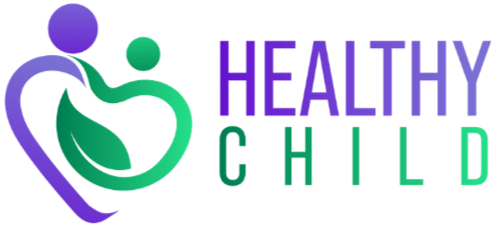Integrating Natural Care
Randall Neustaedter OMD, LAc
Excerpt from Child Health Guide: Holistic Pediatrics for Parents, North Atlantic Books, 2005
The role of conventional medical care
Babies need medical check-ups, approximately every three months in the first year, then less frequently as children grow, once a year after two years old. A health care provider with an understanding of child development and pediatric medical problems needs to perform these. This may be a pediatrician, family practice doctor, naturopathic doctor, or other appropriately trained medical professional. The reason for these check-ups is that problems may become evident that were not present or obvious at a baby’s birth. Vision and hearing need to be checked, and blood tests for anemia and lead are often appropriate. Medical providers sometimes discover excessive wax or fluid in children’s ears, hip or back problems, and genital abnormalities, none of which may be obvious to even the most attentive of parents.
Routine diagnostic exams usually entail no invasive procedures or present any risk to children. However, vaccinations usually accompany well-baby checks at the pediatrician’s office. You should be prepared with your questions and concerns about vaccines. It is certainly helpful if you have reached a decision about the vaccines you feel are appropriate for your child. Or you can inform the pediatrician that you are considering the issues related to vaccines and you would prefer to postpone the decision until your child has reached twelve months of age when the immune system and nervous system are less susceptible to the potential toxic effects of vaccines. This will give you a chance to carefully study the issues and reach an informed decision, rather than being rushed into acquiescence at the two-month baby visit.
Even when your pediatrician discovers a medical problem, you can still investigate alternatives to conventional treatment. If you have found a doctor who respects your desire to pursue the most natural and gentle forms of treatment possible, then communication can be open. You can utilize your pediatrician for information. Does my child have pneumonia? Are her eardrums red? Then you can decide what to do. Thank you, we will take the prescription for antibiotics and use them if it becomes necessary, but we’d rather try a more natural approach first. Some health problems require immediate conventional care, a broken bone, a severe asthma attack, but with most symptoms you can take a watchful, waiting attitude while you pursue natural methods of care that do not involve a risk of side effects. A good book that delineates those times when you should seek professional care will provide added confidence to manage your child’s symptoms at home.
Keep in mind the limited role of conventional medical treatment – relief of symptoms with drugs, saving life in emergencies, and managing essentially physical problems (casts and stitches). Conventional drugs have side effects because they attempt to stop the body from developing symptoms, interfering with natural healing processes. The body inevitably interprets drugs as toxic substances that need to be metabolized and expelled. Sometimes the chemicals in drugs or vaccines are so toxic that they cause cellular and tissue damage that can be irreversible. Parents must seek natural healing systems to find curative and safe treatment.
Questions for the pediatrician
Do you feel comfortable with me using natural forms of treatment for my child’s illnesses?
Would you support me using natural remedies for ear infections rather than antibiotics?
If I choose not to use some vaccines for my child, would this be a problem for you?
Do you support co-sleeping and extended breastfeeding?
The role of natural medical treatment
If you have access to a practitioner of natural medicine, first make sure that he or she is familiar with children’s health problems. Some practitioners do not treat infants and young children. The purpose of natural treatment is to strengthen the immune system and work with the body to overcome symptoms. Natural treatments may include homeopathy, herbs, acupuncture, and chiropractic. They have no side effects because each system works by stimulating a healing response in the body, relying on the body’s own healing mechanisms to overcome illness. The goals are permanent cure of chronic illness, nontoxic treatment of symptoms, and prevention.
The most problematic issue involved in the treatment of children with natural methods is remaining confident that serious symptoms are not being neglected. If your natural medicine provider is trained in diagnosis then you will feel more confident. If you must handle natural treatment on your own with the help of books, then you will need to work with your pediatrician to remain within a margin of safety. Obviously, if your child has the cold that is going the round of your family, then treating him or her with homeopathic remedies, herbs, and nutritional supplements will not raise your anxiety level. However, if you suspect an ear infection, or if your child has a bad cough, then obtaining a diagnosis is essential. Books on home treatment will help you to decide when professional care is needed.
With a chronic illness you may need to balance natural treatment with conventional methods. Managing the interactions of natural treatment, such as homeopathy, with any kind of drug regimen requires skilled professional care. The most common reasons to consult a natural medicine practitioner are allergies, asthma, eczema, recurrent respiratory or ear infections, and behavior or attention problems. Homeopathy has earned a tremendous reputation in the treatment of these conditions. A practitioner will probably schedule a one-hour evaluation visit and then prescribe a constitutional homeopathic medicine. The prescription may be a single dose of a high potency or a daily dose of a lower or an LM potency. The homeopath will want to see the child again in 2-4 weeks for follow-up. Constitutional prescribing requires experience and an understanding of homeopathic theory and case management principles. This is not the realm for parental home prescribing. Other interventions including herbs, nutritional supplements, or acupuncture may all be approproate depending on the judgment and specialty of the practitioner.
Questions for the natural medicine provider
Do you have experience treating children?
Are you comfortable treating newborns and infants?
What typical treatments would you use for ear infections, bronchitis, eczema?
Do you have relationships with pediatricians who are supportive of your practice?
How do you handle emergencies? Are you available by phone when the office is closed?
Natural treatment at home
Appropriate home remedies for symptoms include homeopathy, herbs, acupressure, tui na oriental massage, and nutritional supplements. Parents can learn how to use these treatments through books or classes. No prior experience necessary. These forms of natural treatment allow parents to take control of their children’s health care, and provide parents with the assurance that mild symptoms can be alleviated without risking the side effects of drugs.
Homeopathy provides an especially effective and convenient way for parents to treat children’s illnesses. Homeopathic remedies are completely safe and nontoxic, they work well when prescribed correctly, kids loves their taste so parents get no argument about taking a dose, and the remedies themselves have minimal cost. Homeopathy treats a wide range of acute problems including earaches, coughs and colds, fever, stomach flu, teething, hives, sprains, and many others. With one or two home prescribing books and a kit of remedies, parents can handle the common childhood illnesses without resorting to drugs.
Homeopathic treatment will stimulate a healing reaction, encouraging the body to fight off an infection. To find the right homeopathic medicine, parents compare the symptoms of the child to the descriptions in the books. The correct prescription is usually based upon discerning subtle differences between one remedy and another, but homeopathy is forgiving, and even a partially correct prescription may help to relieve symptoms.
Parents would do well to purchase a home prescribing kit of homeopathic remedies in 12c or 30c strength. Then get two or more books on home prescribing to compare their descriptions. Homeopathic remedies are also available individually in many health food stores. Single remedies achieve the best results. Combination remedies involve a shotgun approach. Several commonly used remedies are mixed together and labeled Cough or Colic. The manufacturer hopes that the right remedy will be present in this mixture. If it is not, then the treatment will be ineffective.
Herbs can be more problematic for small children. Their taste is not always conducive to a cooperative attitude. Several Chinese herbal formulas have been developed to effectively relieve the symptoms of colds and congestion. Western herbs have a wide range of uses from coughs to parasites. Acupressure and tui na Chinese meridian massage are soothing techniques for specific symptoms such as colic or fevers that any parent can learn from a reference book.
Prepare a medical plan
Find a pediatrician or other provider to do well-baby check-ups
Find a provider of natural treatments for times of illness and advice about prevention
Purchase books on natural treatment for home reference
Prevention and natural parenting
Parents can ensure an optimum level of health in their children by pursuing a natural lifestyle. Start with two cardinal principles: breastfeed, and avoid toxic chemicals. Breastfeeding supports a healthy immune system. Avoidance of stressful chemicals prevents breakdown of immune function. Build a strong and resilient body in your child by feeding the highest quality foods you can, and limiting the amount of exposure to harmful products such as pesticides and food additives. Use organic foods when possible. Avoid packaged foods that contain partially hydrogenated fats, nitrates, corn syrup, preservatives, and artificial colors. Use natural soaps, shampoos, and laundry products. Avoid exposure to harsh cleaning products, insecticides, cigarette smoke, and aerosol sprays. Make sure your kids spend plenty of time outdoors getting adequate exercise. These simple lifestyle adjustments may not guarantee perfect health, but they will create resilience, healthy growth, and a high level of physical well-being.

